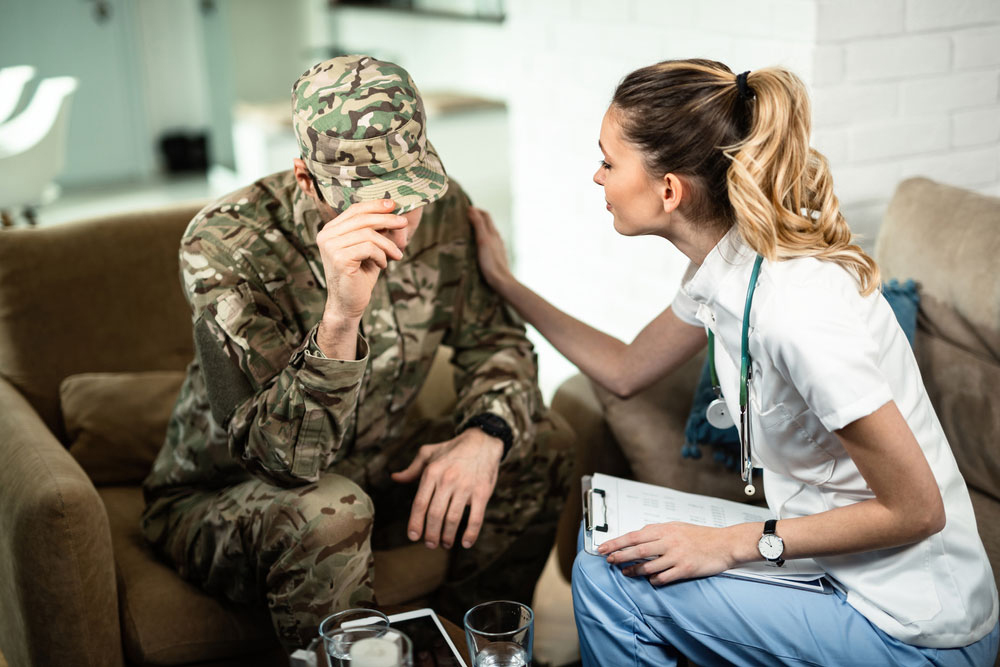As PTSD Awareness Month draws to a close, it’s crucial to reflect on the profound impact this mental health challenge has on the lives of many veterans who have served our country. Untreated PTSD can significantly impair someone’s ability to function in daily life. Warrior Vets’ health professionals provide thorough exams and assessments to ensure veterans receive the comprehensive care they need.
Understanding PTSD in Veterans
PTSD is a mental health condition triggered by experiencing or witnessing a terrifying event. Symptoms can include severe anxiety, flashbacks, intrusive thoughts, and intense emotional distress. For many veterans, these symptoms are a consequence of serving in combat, surviving military sexual trauma, and other consequences of a career in the armed forces.
Recognizing the signs of PTSD is the first step in seeking help.
- Reliving the event: Unwelcome memories, flashbacks, or nightmares can make a veteran feel like they are experiencing the trauma all over again.
- Avoidance: Veterans may avoid places, people, and activities that remind them of the trauma, leading to a sense of isolation and making it harder to recover.
- Increased anxiety and emotional arousal: These side effects can manifest as difficulty sleeping, irritability, startling easily, or having a constant feeling of being on guard.
- Negative changes in beliefs and feelings: PTSD may change how survivors think about themselves and others. Feelings of hopelessness, shame, or despair are common.
- Mood swings: Severe emotional reactions to everyday situations and impaired relationships with family and friends are common.
Causes of PTSD in Veterans
PTSD can develop after exposure to the trials of combat, physical or emotional abuse, sexual violence, or severe accidents. Military veterans are particularly at risk because their jobs are inherently dangerous and emotionally challenging.
- Combat situations can be extremely taxing, creating a nearly constant state of alertness and fear. Witnessing injury, death, and destruction can leave deep psychological scars.
- Long deployments away from family and friends can take an emotional toll and cause significant strain.
- Soldiers may face difficult choices or situations that conflict with their moral code and values.
- Adjusting to civilian life after the high-intensity, structured nature of military service is another hurdle.
Getting Veterans the Help They Need
Military service requires tremendous courage, resilience, and sacrifice. Recognizing this, the Warrior Vets team helps veterans tackle PTSD head-on through comprehensive occupational health evaluations. Our professional team offers an in-depth view of a veteran’s current health and medical history, providing a foundation for future medical interventions. The results will inform a care plan for other health care providers within the VA.
PTSD is a significant issue that disproportionately affects the veteran population. It is crucial to continue raising awareness, providing essential support, and advocating for effective treatment. At Warrior Vets, we pride ourselves on offering assessments to address PTSD symptoms while respecting the dignity and sacrifice of our military service members. Contact us today to learn more.

